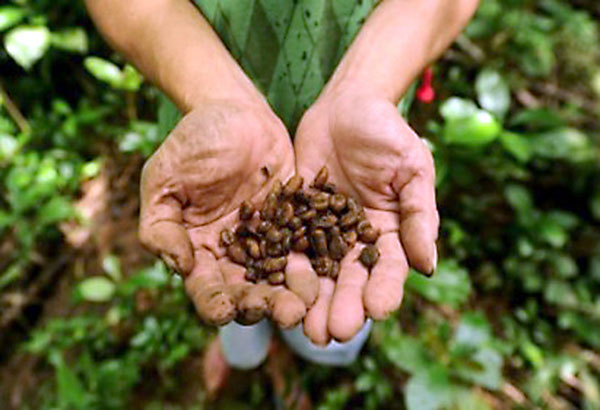From the Rocky Mountains USA to
The Phillipines with Bill and Belle
By Belle Starr
What could a desert kid and mountain boy possibly teach organic farmers in the Philippines about seed saving? That question gnawed 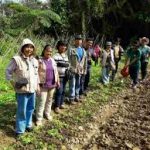 at me as my husband Bill (McDorman) and I made plans to travel to the rural Filipino community of Tublay on behalf of the RockyMountain Seed Alliance, a seed conservation nonprofit we co-direct. Upon arriving in Baguio City in the fall of 2016, I realized the answer: our seed saving traditions everywhere have been wiped out in exchange for food systems based on monoculture, uniformity, and “one-size-fits-all” seeds. In the Philippines, just as in the US, this industrialization has eroded the intimate, time-honored practices of carefully selecting, saving, and replanting seeds—
at me as my husband Bill (McDorman) and I made plans to travel to the rural Filipino community of Tublay on behalf of the RockyMountain Seed Alliance, a seed conservation nonprofit we co-direct. Upon arriving in Baguio City in the fall of 2016, I realized the answer: our seed saving traditions everywhere have been wiped out in exchange for food systems based on monoculture, uniformity, and “one-size-fits-all” seeds. In the Philippines, just as in the US, this industrialization has eroded the intimate, time-honored practices of carefully selecting, saving, and replanting seeds—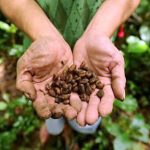 traditions that in many ways have shaped who we are as cultures and communities.
traditions that in many ways have shaped who we are as cultures and communities.
Thankfully, there is a global movement afoot to reconnect with our seed saving traditions and grow our food organically again. In the Philippines, organic farmers are sprouting up everywhere. 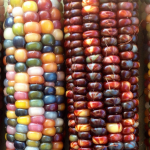 However, as is increasingly true around the world, the seeds they are planting come from large, distant agribusinesses. Many are hybridized, making them difficult to save quality seed from, or they are coated with cancer-causing chemicals. Filipino farmers caught in this toxic, dead-end seed paradigm imported from the industrial West are missing out on opportunities to develop localized seed varieties adapted to where they live.
However, as is increasingly true around the world, the seeds they are planting come from large, distant agribusinesses. Many are hybridized, making them difficult to save quality seed from, or they are coated with cancer-causing chemicals. Filipino farmers caught in this toxic, dead-end seed paradigm imported from the industrial West are missing out on opportunities to develop localized seed varieties adapted to where they live.
Bill and I had the honor of presenting a three-day Seed School to empower these farmers to rejoin the ritual of seed saving. More than 50 organic farmers came from all over the islands to attend. We covered 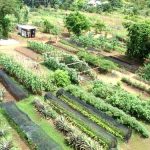 seed-saving basics and found that, by doing so, many of the mysteries were dissolved. Since the US occupation, Filipinos eat vegetable varieties common to Americans, so it wasn’t hard to transfer the knowledge. Their biggest challenge had to do with a lack of cold weather to trigger the flowering process that produces the seed. We came up with creative strategies such as using refrigerators to force flowering for crops like celery and carrots. Bill also gave a quick lesson in “de-hybridizing”, which offers us the best chance to conserve seed diversity by transforming hybrids into open-pollinated varieties to save and share.
seed-saving basics and found that, by doing so, many of the mysteries were dissolved. Since the US occupation, Filipinos eat vegetable varieties common to Americans, so it wasn’t hard to transfer the knowledge. Their biggest challenge had to do with a lack of cold weather to trigger the flowering process that produces the seed. We came up with creative strategies such as using refrigerators to force flowering for crops like celery and carrots. Bill also gave a quick lesson in “de-hybridizing”, which offers us the best chance to conserve seed diversity by transforming hybrids into open-pollinated varieties to save and share.
After this training, local farmers banded together to form the Benguet Association of Seed Savers (BASS), which 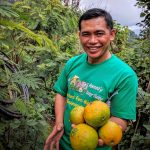 now has 20 farmers from four regions producing organic seed and food for 40,000 people. Alongside Global Seed Savers (our host organization for this trip), they’ve also launched a seed library for the Tublay municipality. We are always so humbled and amazed to witness the incredible impact that a little seed knowledge and inspiration can create in the world.
now has 20 farmers from four regions producing organic seed and food for 40,000 people. Alongside Global Seed Savers (our host organization for this trip), they’ve also launched a seed library for the Tublay municipality. We are always so humbled and amazed to witness the incredible impact that a little seed knowledge and inspiration can create in the world.
Another potent way this is happening is through the new documentary SEED: The Untold Story (which the Filipino farmers saw—and loved!). Rocky Mountain Seed Alliance recently collaborated on a Discussion Guide to accompany the film, which will soon be available for free. We are excited to share this resource and help people take their seed saving curiosity to the next level. Visit our website rockymountainseeds.org to learn more and join the growing global movement for local seeds!

